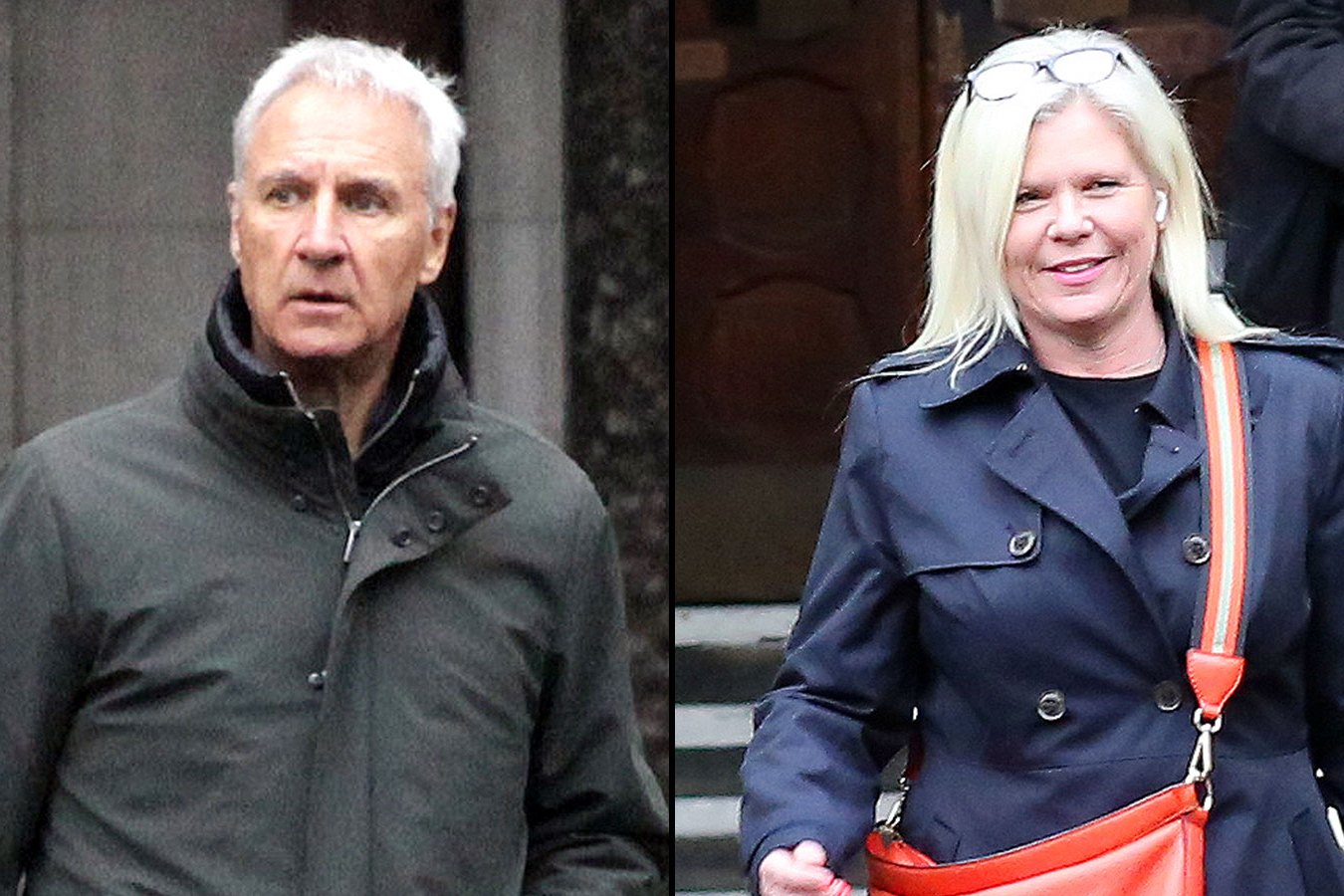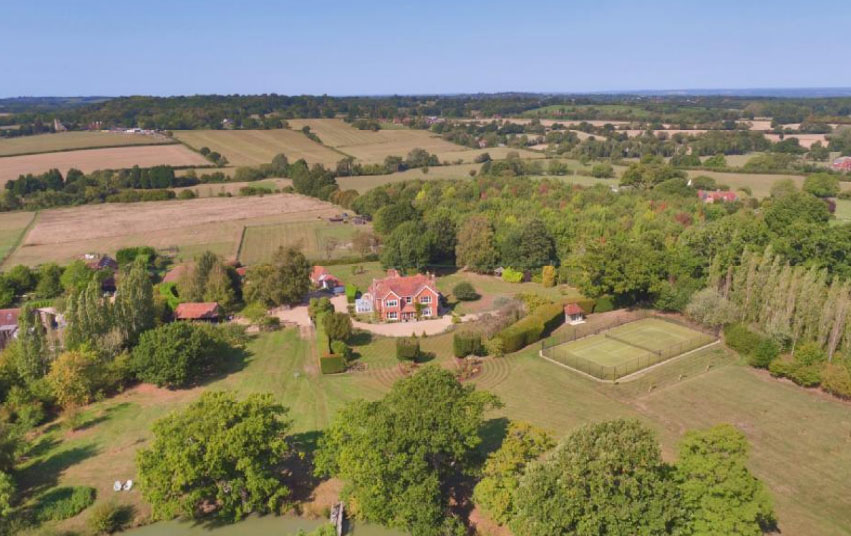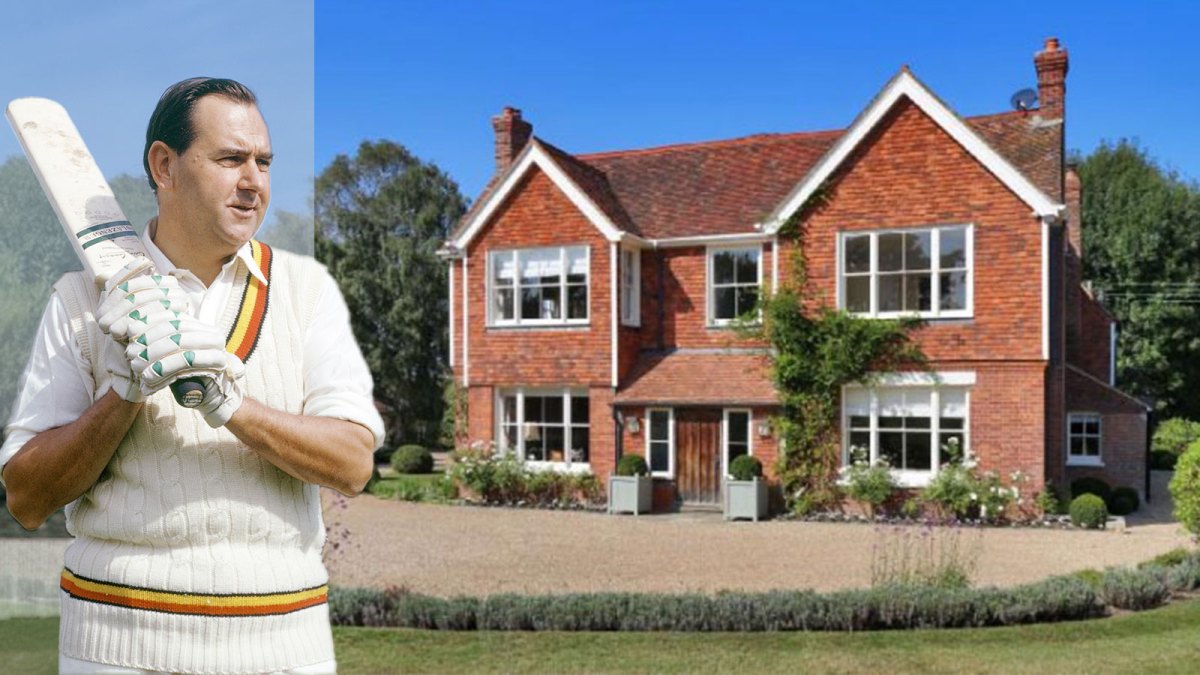The son of a former England cricket captain has been awarded nearly £160,000 after being “blackmailed” by a neighbour over a strip of village land.
Jeremy Cowdrey, whose father, Colin, captained the national side in the 1960s, accused Vanessa Gibson of lying about the legal status of his tennis court which made his house in Kent unsellable.
A judge was told that the dispute between Cowdrey, a film producer, and his neighbour started after Gibson purchased a strip of land in the village of Goudhurst, which meant that she owned part of Cowdrey’s tennis court.
That dispute was initially settled out of court but when Cowdrey attempted to sell his house, Gibson was said to have sent a flurry of emails that jeopardised the sale.

Jeremy Cowdrey sued Vanessa Gibson, who owned part of his tennis court
Cowdrey, 65, sued after prospective buyers withdrew from a deal, accusing his neighbour — a former futures trader — of “terrorising” him with a campaign of harassment akin to water torture. But he has now been awarded a £159,000 payout at Central London county court after the judge, Jane Evans-Gordon, described Gibson’s behaviour as “unreasonable and oppressive”.
The judge ruled that Cowdrey’s neighbour waged the campaign in an attempt to extract “unreasonable sums” from him to allow the property sale to complete. In her ruling Evans-Gordon said that she was “satisfied” that Gibson’s conduct “went well beyond any proper promotion of her own interests and tipped over into a form of blackmail or maliciousness”.
• Why do some properties get snapped up while others struggle to sell?
Earlier the court was told that Gibson, 55, had lived in the village for many years, while Cowdrey moved to Goudhurst after buying Crowbourne Farm in early 2022.
The property consisted of a grade II listed farmhouse with a separate guest cottage, studio, barn, workshop and quadruple car port all set in more than ten acres of grounds, which included the tennis court in addition to stables, woods and two lakes.
Cowdrey told the judge that he had been warned prior to purchasing the property about potential difficulty with his neighbour, who lived in a barn conversion.
The pair initially had a good “neighbourly” relationship and Gibson helped Cowdrey to feed his ducks. However, within a couple of months Cowdrey realised the property was “not right” for him and decided to sell at an asking price of £3.85 million.

Colin Cowdrey with his sons Jeremy, left, and Graham in 1978
NEWS GROUP NEWSPAPERS LTD
Potential buyers were found but they withdrew after Gibson sent emails suggesting that the dispute over the tennis court was continuing. The court was told that in fact the dispute had been settled after Cowdrey agreed to build a fence around the court and to give up any claim to the strip that his neighbour had bought.
Ruling in favour of Cowdrey, the judge agreed that the boundary dispute had been settled and that Gibson had tried to “conceal her intention” to interfere with the sale of Cowdrey’s property. Gibson’s actions were found to have been motivated by “an improper purpose, namely to cause harm, specifically pecuniary loss” to Cowdrey.

The tennis court was at the heart of the dispute
CHAMPION NEWS SERVICE
The judge accepted that Gibson was “entitled to forward her own interests which can include benefiting financially from her land and the covenants benefiting that land”. But she added that “there comes a point where proper motivation tips over into an improper purpose and … that point was reached in this case”.
Cowdrey was awarded £150,000 in damages with interest in addition to £9,000 damages for the “oppressive and unreasonable” campaign of harassment.
The judge said that Gibson “ought to have known that her conduct would have that effect. She had no proper basis for raising most of the issues that she did raise”.
